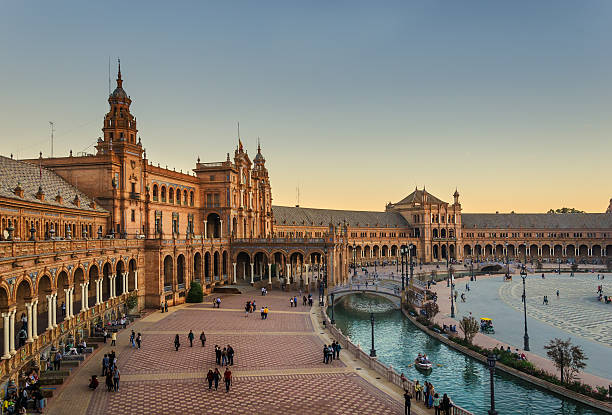Published on
September 13, 2025

Anti-tourism protests in Spain have become a growing concern for the hospitality industry, leading to significant economic strain in popular tourist destinations. Over the past two years, residents in cities like Barcelona, Palma de Mallorca, and Alicante have voiced their frustrations over the impact of overtourism, including rising housing costs and a decline in quality of life. As a result, businesses in these areas have reported decreased activity, particularly during the peak summer months, with some even temporarily closing. The protests, which have included marches, placard displays, and disruptive acts, reflect the larger issue of balancing the economic benefits of tourism with the quality of life for local residents. Despite a strong national tourism performance overall, the local disruptions have highlighted the complex relationship between tourism and community well-being.
Anti-tourism demonstrations across Spain have raised alarms in the hospitality sector, with many businesses reporting lower-than-expected activity during the summer peak season. Protests, which have been ongoing for the past two years, have intensified in popular destinations such as Barcelona, Palma de Mallorca, and Alicante. Local residents have voiced frustration over the impact of overtourism, particularly on housing affordability, local pricing, and the overall quality of life. These protests have taken various forms, including marches, placard displays, and, more dramatically, water gun attacks on tourists. Activists in Mallorca have also staged beach protests by displaying fake warning signs, signaling their opposition to mass tourism.
In resort towns like Benidorm and Lloret de Mar, hospitality businesses have experienced quieter summers. Some bars, restaurants, and other venues were forced to close temporarily due to reduced foot traffic. The Mallorca Hotel Business Federation took to billboard campaigns, emphasizing the economic importance of tourism to the region, as businesses struggled to maintain pre-pandemic tourism levels. Reports from Mallorca indicated a sharp drop in restaurant sales, with some establishments reporting a decrease of up to 50% in May compared to previous years.
To mitigate the impact of the growing protests and manage crowd control, local authorities have taken steps to regulate tourism in some areas. In Alicante, a midnight curfew was enforced earlier this year to help manage the increasing number of visitors. Similarly, Barcelona implemented a ban on organized pub crawls in August, aiming to curb disruptive behaviors associated with large tourist groups.
Despite the ongoing protests and the declines in certain areas, tourism in Spain remains a vital sector for the national economy. Data from HospitalityNet revealed that there was a year-on-year drop in demand across key destinations during the summer months of July and August. Barcelona saw a 7% drop, Palma de Mallorca recorded a 6% decrease, Granada experienced a 4% decline, and Malaga reported a 3% fall in tourism activity. In Mallorca, beach bars, parasol rentals, and holiday activities saw a 20% decline in business in July compared to the same period in 2023.
The number of tourist arrivals from key European markets also showed a downward trend. Arrivals from the UK dropped by 2.2% in July, while those from Germany fell by 8.6%, reflecting the growing concerns of tourists in relation to the protests and local dissatisfaction with overtourism. This decline in arrivals is particularly significant as both the UK and Germany have traditionally been strong sources of visitors to Spain.
However, despite these setbacks, Spain’s tourism sector continues to perform robustly. The National Institute of Statistics reported a record-breaking July, with a staggering 11 million visitors, and tourism spending for the year has exceeded €76 billion. The country’s tourism industry remains a crucial contributor to its economy, accounting for approximately 12% of Spain’s national GDP.
This complex situation illustrates the tension between the benefits and challenges of tourism. While the sector continues to drive economic growth, particularly in regions like Mallorca, the negative impact of overtourism is becoming increasingly difficult to ignore. For Spain’s tourism industry, finding a balance between attracting visitors and addressing the concerns of local residents will be crucial moving forward. With protests showing no signs of slowing down, it remains to be seen how Spain will adapt to these growing pressures while maintaining its status as one of the most visited countries in the world.
link






More Stories
Adventure tourism operators see decline in foreign visitors to Vegas | Tourism
New Incentives for Nature-Based Tourism Investment in Lao Forests
Tourism industry welcomes new cabinet, supports Anutin’s ‘half-price’ scheme